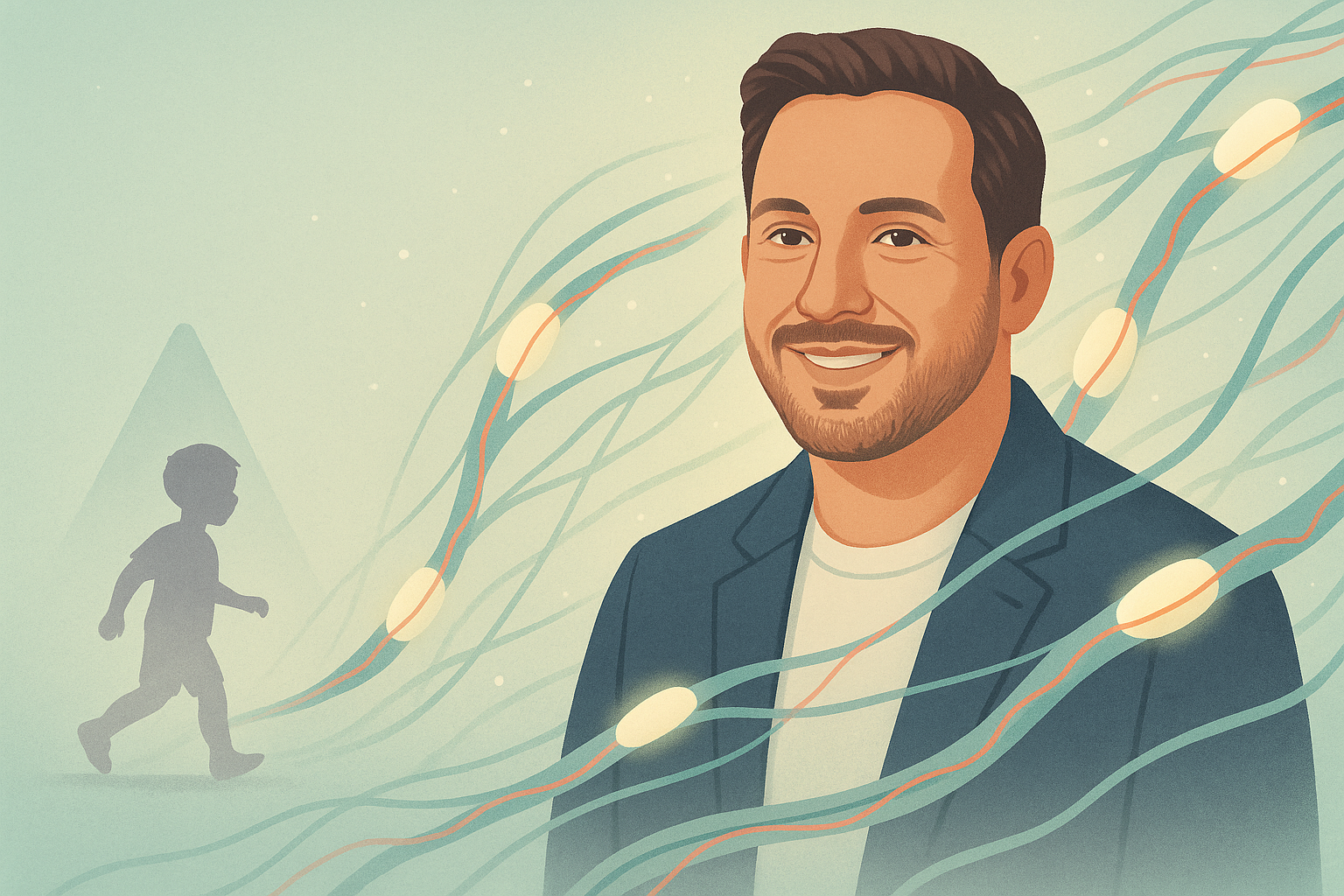In person, David Apple is incredibly positive and driven, with a deep love for learning. He graduated with a degree in mechanical engineering from Johns Hopkins—he jokes that he chose the right school (Hopkins is known for its Medical school), but that he unfortunately chose the wrong major and now wishes he studies pre-med like many of his friends.
David has a strong background in both technology and entrepreneurship. He initially worked as a mechanical engineer for a decade. Following his MBA, he transitioned into the tech industry, where he was notably “right place right time” joining two software companies, Notion and Typeform, as one of the first 15 employees. Both of these companies went on to become multi-billion dollar successes.
His journey took a deeply personal turn when his son was diagnosed with a rare genetic disease, Charcot-Marie-Tooth disease type 1A (CMT1A). This experience ignited a passion within him to make a difference in the rare disease space.
Stepping back from his full-time tech career, David has immersed himself in the world of CMT1A research and advocacy, ultimately founding Shark Tooth Biotech to develop treatments for his son’s condition and others affected by it.
His approach is characterized by a blend of entrepreneurial spirit, a deep love for learning, and a strong desire to address the challenges facing rare disease treatment development.
What is CMT1A?
CMT1A (Charcot-Marie-Tooth disease type 1A) is an inherited neurological disorder that causes progressive muscle weakness and sensory loss. The disease primarily affects the feet, legs, hands, and arms. This is due to a genetic mutation that damages the myelin sheath, the protective covering of nerve fibers, disrupting nerve signal transmission.
Individuals with this condition frequently experience muscle weakness and a reduced sense of touch. Characteristic foot deformities, including high arches and hammer toes, are also common. These can lead to complications such as difficulty with mobility, balance problems, chronic pain, and muscle atrophy. Its severity however varies widely, within families.
How has the diagnosis journey been for David as a parent?
Like many parents of children with rare diseases, David describes the diagnostic journey as exceptionally difficult. A difficulty amplified by the isolation of the COVID-19 pandemic. The family’s heightened caution, involving strict social distancing, limited their ability to compare their son’s development with other children.
Despite their growing concerns about their son’s missed milestones, such as delayed walking, initial pediatric consultations offered little clarity, often dismissing their worries as typical first-time parent anxieties.
Despite repeated reassurances from pediatricians, it was a physical therapist’s insight that finally steered them towards genetic testing. Facing resistance from a geneticist, they took the initiative, paying for the test privately, and finally received the CMT1A diagnosis.
Discovering that your child has an incurable and progressive rare disease is every parent’s nightmare. Instead of despairing, David took immediate action, going on an in-depth exploration of the condition and the search for therapies.
How has AI been helpful?
David’s primary use of AI is to quickly understand complex terminology in medical publications. When he encounters unfamiliar words or concepts, he uses AI to get clear, concise explanations. This allows him to efficiently learn from dense scientific literature.
AI helps him delve into related topics and explore “rabbit holes” of information, fueling his curiosity and deepening his understanding of CMT1A. He interestingly compares this to having a team of PhD students available at any time to answer his questions, but cheaper.
David also uses AI to summarize medical articles before reading them in detail. This helps him quickly assess the relevance and importance of each article, saving him time and focusing his efforts on the most impactful information.
Why Attend Our AI x Rare Disease Event at Berkeley?
This event delves into the potential of generative AI to benefit rare disease patients, and to explore solutions for them. Attendees will participate in an innovative problem-solving session, working alongside experienced mentors from various fields, and gain invaluable knowledge from a panel of expert speakers.
